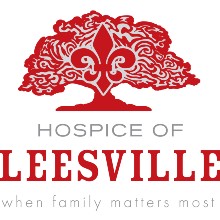|
CHOOSING A HOSPICE Where to start when contemplating hospice care can be overwhelming. Fortunately, the Centers of Medicare and Medicaid (CMS) provides a website, Hospice Compare, for you to explore the hospices within your area or anywhere in the United States. Visiting the site can assist you in making an informed decision about hospice and care provided by each individual agency. Click here to visit Hospice Compare. gov. Review the video for a brief overview.
Hospice care is a health care option to be considered when curative treatment is exhausted or the patient no longer desires active treatment of their illness. When considering hospice, the patient and/or patient's legal representative are encouraged to discuss the type and extent of future medical care desired, their expectations and wishes with their health care professional. BEGIN THE CONVERSATION WITH FAMILY AND LOVED ONES - The patient's future care and wishes should be shared with loved ones. Most families want guidance on carrying out their loved one's wishes out of respect. "Second guessing" a loved one's desires can be agonizing for the family when the loved one can no longer make their wishes known. SELECTING AND CONTACTING THE HOSPICE - Hospice is appropriate when the patient desires a transition from curative treatment to comfort care. The patient should make his/her desire known to his/her physician. The patient may call a hospice and request more information over the phone or by a visit. The patient is encouraged to interview more than one hospice agency to discover what feels the best for them. To identify hospice agencies serving your area Click here to visit Hospice Compare. gov. You can identify hospices in your area by city/state and/or zip code. SPEAKING WITH A HOSPICE -
WHY HOSPICE- Hospice is the only health care model that offers the full array of coordinated services provided by one team -such as nursing, social services, spiritual, bereavement, personal care and volunteer services . All medications, medical supplies, and durable medical equipment (wheelchair, oxygen, etc.) which are related to the patient's hospice diagnosis and related conditions are covered under the hospice benefit. Scheduled visits are planned by the hospice staff in coordination with the patient and or patient representative. The patient will have access to services 24 hours a day, seven days a week, by simply making a phone call. Hospice allows the patient the opportunity to be in familiar surroundings with family, pets, wherever the patient may call home. Unique, comfortable relationships occur between the patient and his/her loved ones, and hospice. Hospice focus is on managing pain and controlling symptoms whereby the patient can focus on sharing moments with family and friends during the final stages of life. This hospice/patient/family relationship begins on admission, through the patient's end of life journey and afterwards, as hospice staff continues to minister to loved ones through the bereavement process for up to 13 months. WHO PAYS FOR HOSPICE CARE - Medicare, Medicaid, VA, and some insurance plans cover the hospice at no cost to the patient. There is also the option for self pay for those who do not quality for one of the aforementioned benefits.
|


















































































